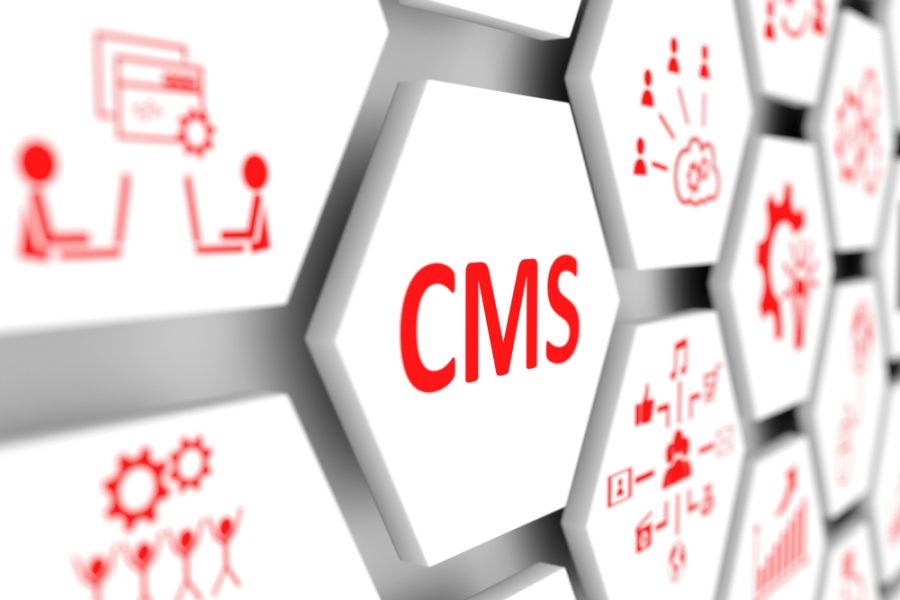A Content Management System (CMS) can save a lot of time and effort if you’re managing a content-heavy website these days, no matter if you publish your own content or not. There are many solutions readily available on the market too, so it doesn’t take long to look around and find one that fits your needs. That said, considering the general feature set of a typical CMS, it may not be that difficult to implement most things you need on your own, as long as you have the skills and assets available.
But as the old saying goes, just because you can doesn’t mean you should. There are some cases where it definitely makes sense to go with a custom-made solution, and you need to learn how to identify them if you want to avoid making a costly mistake.

Investing Time vs Money
When it comes to resources invested in the venture, it mostly comes down to the balance between two main points – time and money. If you have the skills to put together a complete CMS from scratch (or even with the use of some frameworks and libraries), you should carefully evaluate the time you’re going do need for the whole project. Chances are, if you calculate the cost with regards to how much you normally earn per hour, it will usually turn out that rolling out your own solution is the far better choice.
On the other hand, you may only need a small set of features that can be implemented relatively easily and don’t require too much effort. In that case, it might make more sense to get it done yourself instead of paying a lot of money for something which you’ll ultimately only use 10% of.
The Cost of Long-term Maintenance
Another detail that people sometimes overlook – or underestimate – when considering the idea of implementing their own solution is that they will need to maintain it in the long run, and it’s not just about getting the project completed in the first place. You’ll never be free from bugs and other issues, especially if the product is used more actively. You’ll need to make sure that you can afford the time to keep it up to date and to resolve anything that comes up along the way, and that cost can sometimes be much higher than you’d expect.
When you’re running a premade CMS, you have the reassurance of knowing that any issue that comes up is the responsibility of the original developers, and you only need to keep paying your subscription. It’s their problem how they’re going to fix their bugs, and you will also have some level of professional guarantee when using their product. This is something that can often make the purchase of a premade CMS worth it on its own.
Can You Handle Security Issues?
And on that note, remember that security is a whole subset of computer science for a good reason – it’s an extremely complicated field that requires a lot of knowledge and experts in that area must always stay up to date with current trends. There are multiple aspects to consider, and attackers can get quite crafty in exploiting the weaknesses in your design. And the worst part is, you may not even know that something is wrong until it’s too late.
This is especially true when you consider something like choosing the ideal host. Web hosting is a very diverse field nowadays, with numerous companies making various offers that can seem enticing, but unless you understand your needs on a very deep level, you risk paying for the wrong thing. In fact, you may even end up paying quite a lot if you’re not careful, making it very important to have a deep understanding of all issues related to the hosting of your CMS platform, and all the security considerations attached to that.
Updating Your Solution with Modern Technological Trends
Every now and then, something new arrives to the tech market that may prompt you to investigate further and look into the possibility of adding it to your own project. Sometimes these are minor details, but in other cases, you could end up dealing with the prospect of redoing large portions of your code basically from scratch. When this concerns a critical area, like security, it can be a good idea. But in most cases, you’ll just end up wasting your time and effort.
And this will happen more often than you might imagine, requiring you to carefully evaluate your current implementation according to new standards, and to constantly be on your toes about new developments on the market. This can quickly drain your willingness to work on the rest of your project, and it’s a huge problem that many developers don’t even expect to have to deal with.
The Current State of the Market
All that being said, the current state of the CMS market is quite good, and there are lots of solutions for everyone’s needs. There are some smaller platforms fit for those who don’t want any fancy bells and whistles, as well as more advanced, comprehensive ones that can work well for more complex websites that have multiple layers of user interaction. As long as you take the time to compare everything available on the market carefully and know that you’re not missing any particular deal, you should be able to end up with something that fits your requirements more or less perfectly, and doesn’t cost a great deal of money either.
But every now and then, you’re going to run into a situation that clearly calls for a custom-made solution, and learning to recognize those moments is a skill that’s just as important as having the ability to build the necessary systems in the first place. And unfortunately, there’s no straightforward way to train yourself to be good at that – it mostly boils down to having enough experience to recognize each individual situation for what it is. With that in mind, never stop evolving your abilities.


